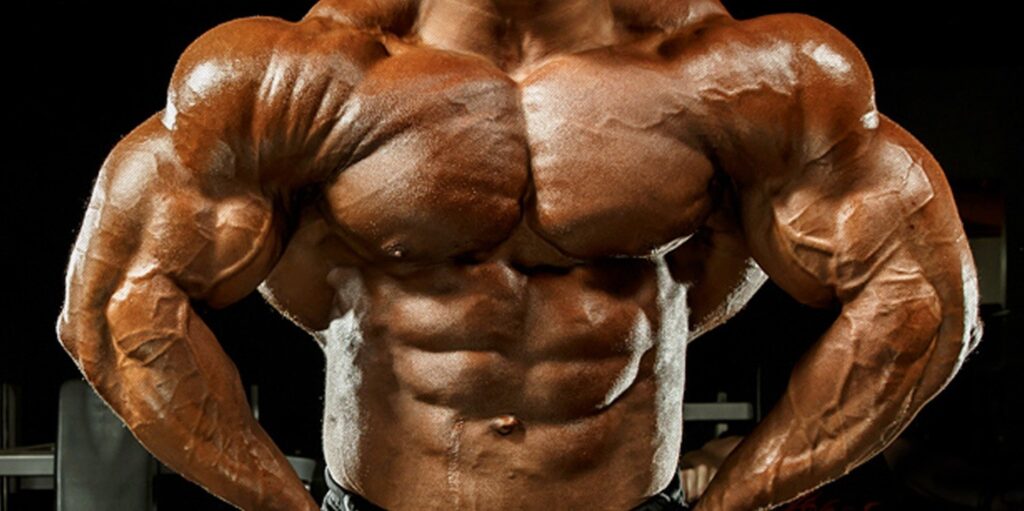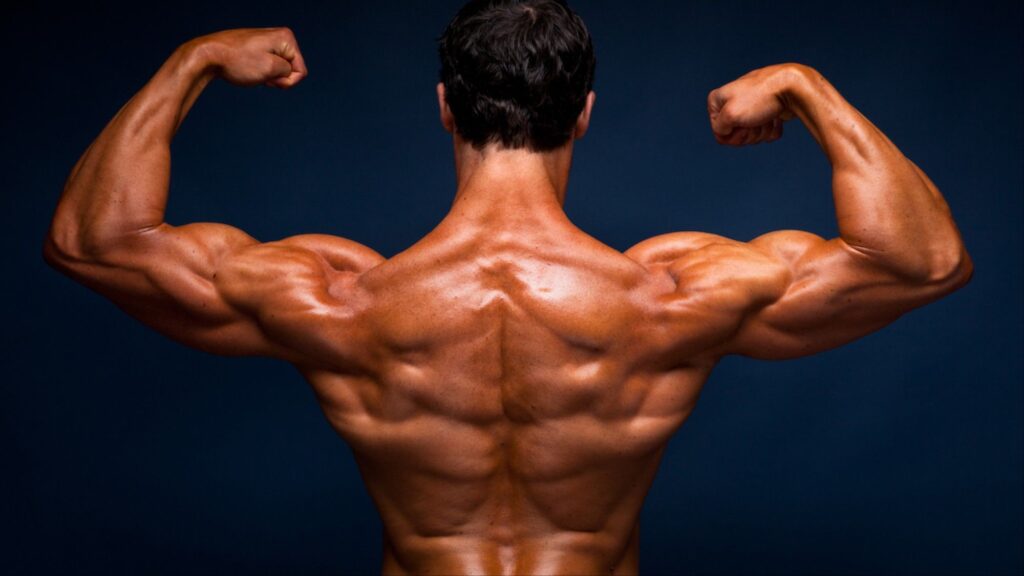Introduction
How To Compete In Bodybuilding: The world of bodybuilding, with its chiseled physiques, sculpted muscles, and remarkable feats of physical transformation, has captivated the imaginations of fitness enthusiasts and athletes alike for generations. For those who aspire to step onto the stage and showcase their dedication, discipline, and hard-earned gains, competing in bodybuilding represents the ultimate test of both physical and mental prowess.
Competitive bodybuilding stands as a testament to human potential, showcasing the pinnacle of physique development and conditioning. It combines elements of art and science, as athletes meticulously craft their bodies through training, nutrition, and mindset, all while emphasizing symmetry, proportion, and aesthetics. Competing in bodybuilding offers a unique platform for individuals to display their hard work, dedication, and passion for the sport.
Nutrition is the cornerstone of bodybuilding success. Discover the importance of macronutrients, micronutrients, meal timing, and supplementation in fueling your transformation. Achieving the optimal balance of muscle mass and body fat is a delicate yet critical aspect of bodybuilding. Learn how to fine-tune your body composition for competition day. Bodybuilding competitions are not just about muscle size; they are also about presentation. Perfecting your posing routine is an art that can significantly impact your overall performance.

How can I enter a bodybuilding competition?
You have to make sure you pay for a membership in the organization you want to join – NPC (most popular), OCB, WBFF, IFBB, etc, then pay for EACH category you want to do – usually novice, and then a men’s open (your weight class or height), but there’s also junior divison, and for women – bikini and figure.
Set Clear Goals:
- Determine your competition goals. Are you looking to compete in a specific category, such as physique, bodybuilding, figure, or bikini? Clarify your objectives and the level of competition you aspire to.
Build Your Physique:
- Commit to a structured training program designed to build muscle mass, improve symmetry, and achieve the desired body composition.
- Consider working with a certified personal trainer or a bodybuilding coach who can create a tailored training plan to address your specific goals and needs.
Create a Nutrition Plan:
- Develop a comprehensive nutrition plan that aligns with your competition goals. This plan should include macronutrient ratios, meal timing, and calorie management.
- Consult with a registered dietitian or nutritionist who specializes in sports nutrition to ensure your diet supports muscle growth and fat loss while optimizing health.
What age can you compete in bodybuilding?
NANBF competitors must be age 13 or older, except for the Transformation Challenge where participants must be at least 18 years of age at the time of entry. There is no age limit to compete. We offer Masters divisions for those age 40 and older.
Open Division: This division is open to competitors of all ages and experience levels. It is often the most competitive category and includes both younger and older athletes.
Teen Division: This category is specifically for teenagers, typically those aged 19 and under. It provides an opportunity for younger individuals to compete against peers in their age group.
Masters Division: The Masters division is for competitors who are typically 35 years of age or older. It may have multiple age subcategories (e.g., 35-40, 40-45, 45-50, 50+), allowing older athletes to compete against others in their age bracket.
Novice Division: Some competitions offer a Novice division, which is typically open to individuals who have not previously won a bodybuilding competition. Novice competitors may range in age.
Is bodybuilding a career option?
Bodybuilding can be both a fun recreational activity and a professional career. If you’re interested in bodybuilding, you may seek professional opportunities that allow you to pursue your bodybuilding goals more effectively.
Professional Bodybuilder: Becoming a professional bodybuilder is the most direct way to turn bodybuilding into a career. This path involves competing in amateur competitions, earning professional status, and then competing in professional bodybuilding events for cash prizes, sponsorships, and endorsements.
Fitness and Personal Training: Many bodybuilders become certified personal trainers or fitness coaches. They use their expertise to help clients achieve their fitness and physique goals. This career option allows you to share your knowledge and passion for bodybuilding while earning a living.
Nutrition and Diet Coaching: Nutrition is a crucial aspect of bodybuilding. Some bodybuilders become certified nutritionists or dietitians and offer specialized nutrition and diet coaching to clients looking to optimize their nutrition for muscle growth and fat loss.
Do bodybuilders get paid?
As a niche hobby, the median salary for a local bodybuilder is $32,020 per year. The middle 50% of bodybuilders will make between $28,000 and $29,000 per year. The top 83% can make up to $187,000 per year. Unfortunately, bodybuilders do not make a salary.
Prize Money: Professional bodybuilders who compete in high-profile events like the Olympia or Arnold Classic can earn significant cash prizes. These competitions often offer substantial financial rewards to the top athletes.
Sponsorships: Many bodybuilders secure sponsorship deals with fitness and supplement companies. These sponsorships can include monetary compensation, free products, and promotional opportunities. The level of sponsorship and compensation varies based on an athlete’s popularity and success.
Endorsements: Bodybuilders with a strong following and a good public image may be sought after for endorsements. They can promote fitness, nutrition, and supplement products, earning money through endorsement deals.
Can I be bodybuilder in 1 year?
Bodybuilding requires much time and effort to reach the desired results. A novice bodybuilder may be able to gain 8–20 pounds (4–9 kg) of muscle per year if they lift weights for seven hours per week, but muscle gains begin to slow down after the first two years to about 5–15 pounds (2–7 kg) per year.
Building Muscle Mass: Building the muscle mass required for competitive bodybuilding can take several years of consistent training and proper nutrition. While you can make noticeable progress in one year, achieving the level of muscle development required for competition often requires more time.
Body Fat Reduction: Competitive bodybuilders typically need to reduce their body fat to very low levels to achieve the desired level of muscular definition and conditioning. This process, known as cutting or leaning out, can take several months and should be done gradually to preserve muscle mass.
Experience and Skill: Competing in bodybuilding also involves learning the art of posing, stage presence, and presentation. Developing these skills can take time and practice.
Who is a beginner in bodybuilding?
First, if you have started bodybuilding, then you are a beginner bodybuilder. That is the easy one. Some will way you are intermediate if you have been training (correctly) for six months to one year, and you are advanced if you have been training for 1–2 years or more.
Complete Novice: These individuals are entirely new to weightlifting and bodybuilding. They may have little to no experience with strength training exercises, nutrition planning, or competition preparation.
Fitness Enthusiast: Some beginners have a background in general fitness or other athletic activities but are new to bodybuilding-specific training and competition. They may have experience with cardio workouts, sports, or recreational lifting but are just starting to focus on building muscle and sculpting their physique.
Casual Gym-Goer: Casual gym-goers may have been working out at a fitness facility but have not yet followed a structured bodybuilding training program or dedicated themselves to specific bodybuilding goals.
How do I start physique training?
“For any physique programme, aim to do large compound lifts first, then add in accessory exercises such as biceps curls, lateral raises or triceps push-downs. To improve body composition keep rest periods to around 60 seconds.”
Define Your Goals:
- Clarify your goals. What do you want to achieve with your physique training? Are you aiming for muscle gain, fat loss, improved definition, or a combination of these? Having specific goals will guide your training and nutrition plans.
Educate Yourself:
- Learn the basics of strength training, resistance exercises, and bodybuilding principles. Understanding how your muscles work, the importance of progressive overload, and different training techniques will be crucial.
Assess Your Current Fitness Level:
- Evaluate your current fitness and strength level. This will help you determine an appropriate starting point for your training program.
What age is Masters bodybuilding?
Masters Division – This division is for experienced bodybuilders who are 40 years of age or older. As with the other divisions, the criteria is more stringent and you will compete against a more experienced group of bodybuilders.
Masters 35+: This category typically includes athletes who are at least 35 years old. Some events may have subcategories within this division, such as 35-40, 40-45, and so on.
Masters 40+: Competitors in this division are typically 40 years old or older. As with the Masters 35+ division, subcategories by age may be present.
Masters 50+: This division includes athletes who are at least 50 years old. Like the other Masters divisions, it may have subcategories for different age groups within this range.
Masters 60+: Some competitions offer a Masters 60+ division, which is specifically for athletes aged 60 and above.

Conclusion
Bodybuilding is both an art and a science, where your body becomes the canvas, and every rep, every meal, and every moment of discipline contributes to the masterpiece. Your physique is a reflection of your dedication and perseverance. The gym is where iron meets willpower. It’s a place of transformation where you forge your muscles and your mental strength. Effective training programs, rooted in progressive overload and smart periodization, are your allies on this journey. Nutrition fuels your body and shapes your physique.
The careful balance of macronutrients, micronutrients, and meal timing can spell the difference between victory and defeat. The Art of Presentation: Posing is your opportunity to showcase your hard work on stage. The graceful, confident presentation of your physique is an art form that can sway judges and captivate audiences. Mental fortitude is your invisible armor in bodybuilding. Embrace challenges, cultivate resilience, and maintain unwavering focus as you navigate the highs and lows of this demanding journey.
Never forget that your journey should prioritize your health and well-being. Injury prevention, recovery, and professional guidance are your allies in the pursuit of a sustainable and fulfilling bodybuilding lifestyle. Beyond the sculpted physiques and the trophies, competition bodybuilding is a journey of profound personal growth. It teaches you discipline, patience, and the power of persistence.

